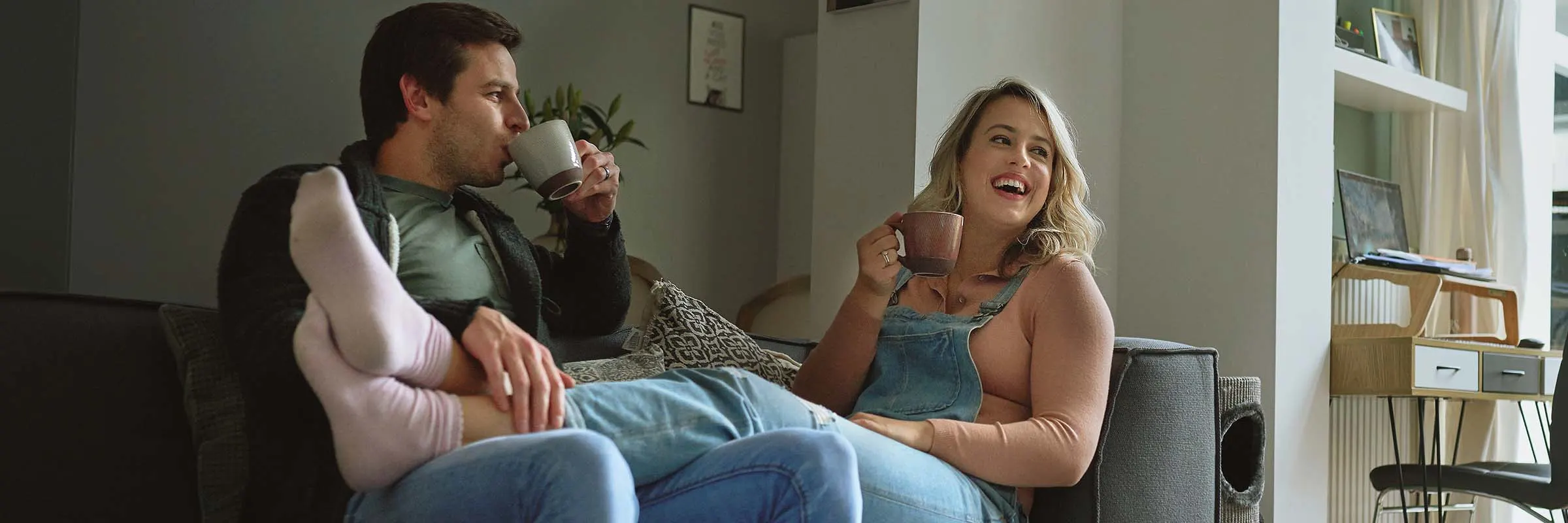What we'll cover
The definition of a workcation
The cost of a long-term workcation
Financial considerations if you take a workcation
Ever notice how vacations seem to end just as you’re getting the hang of your new surroundings? By the time you’ve fully embraced island life, become your best speed-walking city self or are fully connected with Mother Nature at your home away from home, it’s usually time to head back.
But what if it wasn’t?
While most of us might not have the vacation days to take more than a week or two of time off, there’s another option for those with more flexible jobs: a long working vacation. Imagine an extended stay (think a month or more) in your dream vacation spot where you take your work with you.
Welcome to your workcation.
What's a workcation?
Working on vacation might sound like the behavior of a workaholic, but this new travel trend is actually about finding balance. Maybe you work for a couple of weeks from a beachfront destination then take a week off to close out the trip. Or maybe you live and work at your destination of choice for a month and work three to four days a week and take long weekends. The beauty of a workcation is that you decide what works best for you.
If you’ve ever experienced the productivity boost that can come from changing locations, even something as simple as heading to the coffee shop around the corner, imagine what working from a cafe halfway across the globe could do?
It’s not such a wild idea. In the U.S., almost half of employed travelers say they’re interested in taking a workcation. With today’s digital capabilities, it’s definitely less complex than ever before to connect with work from anywhere. You might already be working from home — so why not keep it up, only from a different destination? As long as there is a power outlet and decent Wi-Fi for video conferencing, you can be your productive work self on top, board shorts and by the beach on the bottom.
If you’re low on vacation days, a workcation can also be a practical way to extend a trip, giving you the opportunity to really immerse yourself in the culture of your destination.
An extended getaway may seem indulgent and impossible, but with technology and smart savings strategies, it’s never been more practical. And we’re here to help you get ready for take-off.
Travel log (off): If you’d like a workcation without the work, talk to your employer about the possibility of a hiatus or a sabbatical to give you the time you need to fully recharge without having to clock in.
The cost of a long-term vacation
A lengthy escape is going to be more expensive than a weekend away. However, one of the perks of a workcation, especially for those with limited paid time off, is there’s no disruption to your income. In addition to that, there are ways you can curb some of the costs to keep you on budget.
Step one, try to keep those big costs as low as possible. For instance, budgets most often balloon in the lodging category. So, if you’re planning a trip that’s a few months instead of a few days, a hotel stay may not be as practical.
Instead, you can make your dream vacation affordable by subletting an apartment or a house for the short term. (No long-term lease required.) Or you could use sites like Airbnb and VRBO, which can help you find long-term vacation rentals that are fully furnished and wired for your connectivity needs.
Book a rental for a month or longer, and you might be able to land a discount on the rental’s daily or weekly rate. And with the variety in choices, you could land a stay in an incredible apartment in the city, HGTV-worthy tiny house in the woods, or even a breezy beachside cottage.
Tip: Rent out your home while you’re away, and you could cancel out any lodging costs you may accrue (or even make extra money!).
Food is another considerable cost to factor into your budget. We don’t want to discourage you from tasting the local cuisine, but choosing to dine out at lunch (it’s generally cheaper than dinner) or picking up your take-out order (to save on delivery charges) are easy ways to save money while still experiencing the flavors of your new location. And of course, making your own meals is the best way to reduce your food bills (and eat healthy on a budget) when you’re on vacay.
Save longer to stay a while.
On average, Americans spend about 5 to 10% of their income on vacations. If you’re considering an extended workcation, use this amount as a point of reference when plotting your saving strategies. Make it simple (and fun) with a vacation bucket in your Ally Bank Online Savings Account to keep your travel money separate from your other savings goals. By visualizing your financial goals and seeing exactly how much you’ve set aside (and how far you have to go) you can stay motivated.
Once you know your target savings amount, and when you want to take your long vacation, you can figure out how much you need to save per week (or month) to achieve your goal. Simply divide the amount by the number of weeks/months you have until your trip, then set up recurring transfers into your savings account. When you automate your savings, you’re more likely to hit your goal — so you can quit daydreaming about your vacay and hit the road.
What about taxes?
If your workcation will take you to a different state or country than where you’re normally employed, before jetting off, you’ll want to research how long you can be there before you’re subject to income tax reporting requirements. Tax codes vary, and you could be on the hook for income tax in another location if you work from somewhere else for a certain amount of time.
Take a long-term breather.
An extended stay workcation is slower, calmer and more exploratory than other travel. But getting away for the long-term is not without expense, which is why it’s important to plan in advance and prepare for the expected costs.
A long vacation can be the substantial recharge you need that a few days, or even a week, away can’t give you. Instead of feeling somewhat relaxed when it’s time to go back home, an extended stay somewhere can help you fully reset and return home remarkably refreshed.



